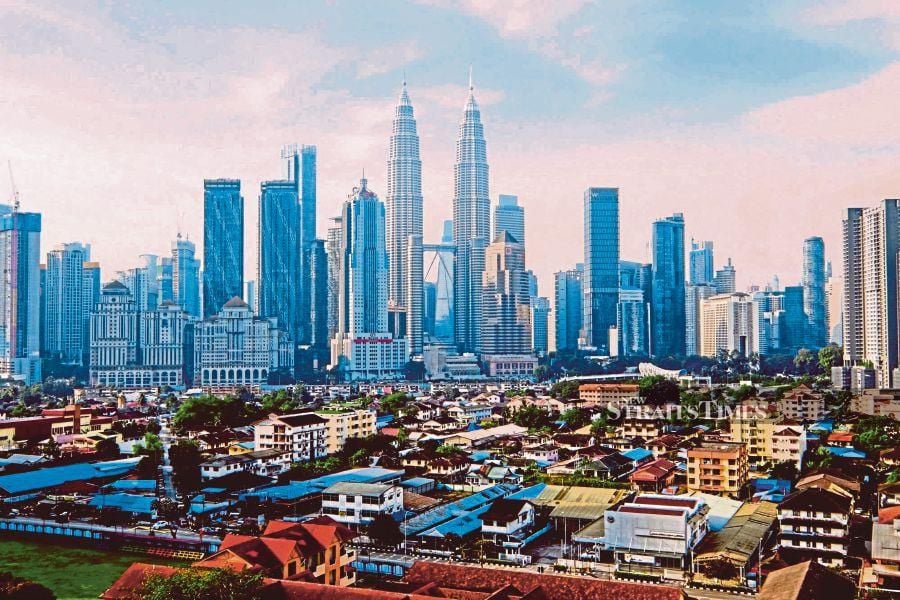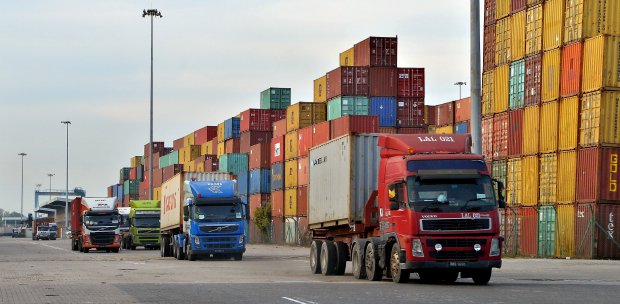The Malaysian economy must gear itself for a reset with the onset of the new year.
Aside from the political rhetoric, the people on the ground have not yet witnessed the true impact of the one-year-old Pakatan government.
The general impression on the ground is that the government is still staggering in confusion, and they are yet to see any clarity on how it proposes to address the issue of rising prices, the widening fiscal deficit, high operating expenditures, or raising its revenue base. While subsidy rationalisation has been talked about for a long time, it has yet to come up with the necessary mechanism to ensure that only the intended groups receive the aid and assistance.
The government must take incremental steps to address all the problems plaguing the economy. The people must see and feel the effects of the government's gradual efforts to address all of the economic issues before the economy picks up significant steam, with the participation of both foreign and domestic investors.
The current scenario is akin to a patient being wheeled into the emergency room with paramedics reading out the patient's vital parameters before the doctors decide what is the first thing he needs to attend to. It is paramount that preserving the patient's life is most important, and the doctor will attend to that first, and any other problem can only be secondary to that.
In the same way, the government must decide what is the most important aspect of the economy that it needs to deal with before the rest to preserve the well-being of all.
Bringing the price of essential goods down
The most important and first priority would be to bring down the prices of goods that have generally increased over the last three years due to the pandemic and other factors such as the Russia-Ukraine war and the ensuing systematic disruption in the supply chain.
The government can consider providing subsidies to producers and retailers to offset their operational costs, allowing them to sell essential goods at lower prices. It can also establish price stabilisation funds to absorb the price stabilisation of key commodities. Malaysia has traditionally subsidised items like cooking oil and flour to keep prices affordable for consumers.
It must also further find ways of bolstering agricultural and food production that would reduce its reliance on imports, which are likely to escalate with the depreciating ringgit.
Malaysia must also look to assist it in bringing down prices through the dismantling of cartels. Cartels are illegal agreements among businesses to fix prices or limit production that can lead to higher prices for consumers and hinder fair competition.
Bolstering domestic and foreign investments
With general prices in the economy coming down, consumers would have more money to spend on helping bolster consumer spending, which would enhance domestic investments. This would certainly bode well for the economy, as increased aggregate demand would lead to higher employment. Increasing domestic investments and consumer spending is crucial, as this would offset the tepid exports expected next year as the world economy slows down. In terms of foreign investments, the country must look towards attracting industries that are planning to relocate following COVID-19-related disruptions in China. In addition, it must ensure bureaucratic hassles are out of the way to facilitate greater investment inflow.
Broadening the Revenue Base
The government should look to increase its revenue base, and the first step towards this would be the re-introduction of the goods and services tax (GST), which would help plug the national deficit hole of RM1.5 trillion and forestall the shadow economy estimated to be around RM300 billion. The GST would help the national deficit hole that now stands to the tune of RM1.5 trillion and forestall the shadow economy of around RM300 billion.
The added revenue for the government is to the tune of RM44 billion, compared to RM22 billion from the SST. This would help the government with many development initiatives that it would not be able to carry out if not for the additional funds. Aside from this, there must be a considerable degree of prudence in government expenditure, as waste and pilfering should be forestalled.
Riding on the wave of a depreciating ringgit
The weaker ringgit is likely to help boost the tourism sector, and efforts must be made to shore up this sector through promotional efforts to bring in more tourists into the country. It must highlight and promote Malaysia's rich cultural heritage and diverse festivals and continue investing in infrastructural development, including transportation, accommodation, and tourist facilities. Malaysia must emphasize throughout its campaign its natural beauty and biodiversity to attract ecotourists.
For a full-blown recovery of the Malaysian economy, it should follow a prescribed order in its recovery plans, and this would help kick-start the Malaysian economy, which had been in an abysmal state for a long time. Efforts will also be made by all the relevant authorities to facilitate a greater inflow of investments into the country by reducing the necessary administrative hassles. If this follows, we are assured of a bountiful 2024 and the years ahead. Happy New Year to all readers!





